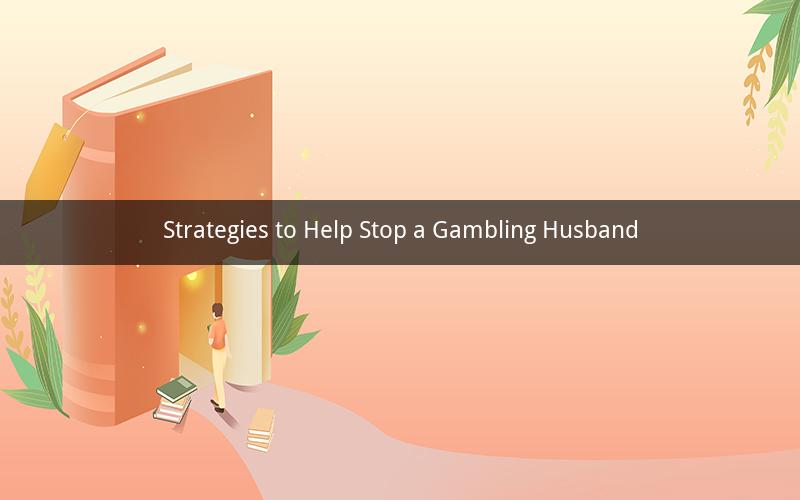
Introduction:
Gambling addiction can be a devastating issue for both the individual and their family. If you have a husband who is struggling with a gambling problem, it's important to take action to help him overcome this addiction. This article will provide you with practical strategies to help stop a gambling husband.
1. Understanding the Problem:
Before you can help your husband stop gambling, it's crucial to understand the nature of his addiction. Here are some key points to consider:
- Recognize the signs of gambling addiction: excessive time spent on gambling, financial difficulties, secrecy, lying, and neglecting responsibilities.
- Understand the reasons behind his gambling: it could be due to stress, boredom, or a desire for excitement.
- Acknowledge the emotional and psychological impact of gambling addiction on your relationship and family.
2. Communicate Openly:
Communication is key in addressing your husband's gambling addiction. Here's how you can communicate effectively:
- Choose an appropriate time and place to talk, when you're both calm and not under stress.
- Express your concerns and feelings without blaming or shaming him. Use "I" statements, such as "I feel worried when I see you gambling" instead of "You always gamble and it makes me angry."
- Be empathetic and listen to his perspective. Understand that he may be defensive or resistant to change.
3. Encourage Professional Help:
Professional help is essential in overcoming a gambling addiction. Here's how you can encourage your husband to seek help:
- Suggest seeking counseling or therapy from a qualified professional who specializes in gambling addiction.
- Offer to accompany him to therapy sessions or support groups.
- Research treatment options and share information with him to help him make an informed decision.
4. Establish Boundaries:
Setting clear boundaries can help prevent your husband from relapsing into his gambling addiction. Consider the following steps:
- Remove access to gambling resources, such as credit cards, online gambling sites, and cash.
- Establish a spending limit and monitor his financial activities.
- Encourage him to engage in alternative activities to replace gambling, such as hobbies, exercise, or socializing.
5. Support and Encouragement:
Supporting your husband through his recovery journey is crucial. Here's how you can provide the necessary support:
- Be patient and understanding, as overcoming a gambling addiction is a challenging process.
- Celebrate small victories and milestones in his recovery.
- Encourage him to join support groups for gamblers and their families, such as Gamblers Anonymous or Al-Anon.
6. Strengthen Your Relationship:
As you work on helping your husband overcome his gambling addiction, it's important to strengthen your relationship. Consider the following tips:
- Focus on building trust and open communication.
- Spend quality time together, away from the stress of his addiction.
- Seek couple's therapy to address any underlying issues in your relationship.
7. Educate Yourself:
Educating yourself about gambling addiction can help you better understand the challenges your husband faces and provide appropriate support. Here are some resources to consider:
- Books on gambling addiction and recovery
- Online support groups and forums
- Professional organizations and websites dedicated to gambling addiction
Conclusion:
Helping a gambling husband overcome his addiction requires patience, understanding, and support. By following these strategies, you can make a significant impact on his recovery journey and strengthen your relationship in the process.
Questions and Answers:
1. Q: How can I help my husband recognize that he has a gambling problem?
A: Start by expressing your concerns and observations without judgment. Encourage him to reflect on the impact of his gambling on his life and the family.
2. Q: What should I do if my husband refuses to seek professional help?
A: Continue to offer support and gently encourage him to consider professional help. Share stories of others who have benefited from therapy or support groups.
3. Q: How can I cope with the financial consequences of my husband's gambling addiction?
A: Create a budget to manage your household expenses, seek financial counseling if needed, and explore options for debt consolidation or credit counseling.
4. Q: Is it normal for my husband to become defensive when I mention his gambling addiction?
A: Yes, it's common for individuals with gambling addiction to become defensive. Remain calm and empathetic, and focus on expressing your concerns rather than accusing him.
5. Q: How long does it take for someone to recover from a gambling addiction?
A: The duration of recovery varies for each individual. Some may experience immediate improvement, while others may require ongoing support and treatment for several years. Be patient and supportive throughout the process.